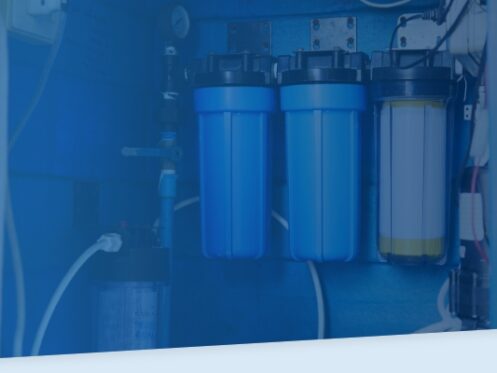Water heaters have become essential in our daily lives. From a relaxing hot shower after a long day to doing the dishes, we heavily rely on them. Choosing the right water heater size is crucial for optimal performance, like any other appliance. But how do you determine the right size for your home?
1. Understand the Types of Water Heaters Available
When diving into the world of water heaters, it’s essential to recognize that multiple types are available in today’s market. Each type serves unique purposes and can vary in size, function, and energy consumption. The conventional storage-tank water heater is the most common; it keeps a reservoir of hot water available for immediate use. These tanks continuously work to keep the stored water at a consistent temperature, making them a choice for many households.
On the other hand, tankless water heaters, often known as on-demand heaters, heat the water only when you need it, offering a modern, energy-efficient twist. These units can be more compact and deliver a continuous hot water supply, as it doesn’t rely on a storage tank. Then, there are heat pump water heaters, which utilize heat from the air or ground to warm up the water. These are known for their energy efficiency and eco-friendly nature. Understanding the distinct advantages of each type can greatly inform your decision on size and model.
2. Evaluate Your Household’s Peak Demand
Your household’s peak demand is pivotal when sizing your water heater. It measures how much hot water you might use during the busiest hour of the day. For instance, imagine a morning when everyone in the house is rushing to get ready. Showers are running, someone is doing laundry, and another is washing dishes. All these activities could happen simultaneously, necessitating a robust hot water supply.
Considering your household’s peak demand ensures you don’t end up with a water heater that falls short during those crucial times. It’s a balancing act between choosing a unit that meets your needs without wasting energy by heating too much water you won’t use. When calculating this demand, consider every potential use of hot water — from baths and showers to appliances. An accurate estimate will lead you closer to the perfect-sized water heater for your home.
3. Consider the First Hour Rating (FHR)
The FHR is a vital metric for anyone in the market for a new water heater. It represents the hot water a heater can supply within an hour, starting with a full tank. If your household uses a lot of hot water within a short period, a unit with a high FHR is essential. For example, if your family regularly takes showers back-to-back in the morning, you’d want to ensure the water heater can handle this demand.
You can narrow down your options by comparing the FHR of various units with your household’s peak demand. It’s always a good idea to select a unit with an FHR that’s slightly higher than your estimated peak demand. This gives you a buffer, ensuring you always have enough hot water during those peak usage times.
4. Factor in the Number of People in Your Home
One of the most straightforward considerations is the number of residents in your household. Logically, a family of six will typically use more hot water than a couple. Think about daily routines, from showers and baths to hand washing and cooking. Every member of your family contributes to the overall water demand.
However, it’s not just about the present. Consider any potential changes in the future. Are you planning to have more children? Perhaps an elderly relative might move in? Planning for such scenarios ensures your water heater remains adequate for years. While it might seem like over-preparation, it’s always better to think ahead than to find your system needing more.
5. Look at the Size of Your Home
The physical size of your home can also influence the size of the water heater you need. A large house with multiple bathrooms and a spacious kitchen might necessitate a larger capacity heater. In contrast, a compact apartment or a smaller house may be sufficiently served by a less substantial unit.
When evaluating based on your home’s size, think about the distance the hot water needs to travel. A larger home means longer pipes; the hot water might cool down as it travels from the heater to the faucet. In such cases, consider installing tankless water heaters at point-of-use sites or choosing a larger central unit.
Remember, the goal is to ensure every tap, shower, or appliance gets a consistent hot water supply without long wait times. Evaluating your space and understanding the dynamics can help you choose the right water heater size.
6. Think About Future Expansion
As you lay out plans for your current home needs, it’s prudent to also think about the future. Do you have plans to renovate or expand your home? Adding an extra bathroom or a more extensive kitchen? Such expansions will increase the demand for hot water; thus, having a water heater that can accommodate this growth is crucial.
Moreover, if you foresee a growth in your family size or anticipate more frequent guests in the coming years, investing in a water heater that can handle these changes is wise. Planning ahead is better than needing an upgrade sooner than you thought.
7. Be Mindful of Energy Efficiency
While determining the right size for your water heater is essential, it’s equally crucial to consider its energy efficiency. Energy-efficient models might seem more expensive initially, but they can save you significant energy bills in the long run. Furthermore, they’re better for the environment, reducing your home’s carbon footprint.
Look for units with the Energy Star label or check their Energy Factor (EF) rating. A higher EF rating indicates a more efficient unit. By opting for energy-efficient models, you can ensure that your water heater provides hot water without wasting energy.
8. Seek Expert Advice
Expert input can be invaluable when making decisions about your home’s infrastructure, especially something as integral as a water heater. While the digital age provides a wealth of knowledge at our fingertips, the nuanced understanding that comes from years of hands-on experience cannot be replicated. Professionals in the field, like those at Christian Brothers Air Conditioning Plumbing Electrical, have the expertise to analyze the specific needs of your home. They consider factors like your house’s layout, the number of residents, and your daily water usage patterns to provide tailored advice.
Moreover, seeking expert advice ensures that you get the right size and a water heater that’s efficient, durable, and cost-effective in the long run. By collaborating with a trusted expert, you can avoid common pitfalls and oversights when selecting a unit based solely on generic guidelines. Engaging with professionals adds a layer of assurance, ensuring that your investment into a new water heater yields the best results for your household.
Making an informed decision about your water heater size is pivotal to ensuring a consistent hot water supply, energy efficiency, and long-term satisfaction. Whether you’re just starting your research or ready to make a decision, Christian Brothers Air Conditioning Plumbing Electrical is here to provide expert guidance every step of the way. Reach out to Christian Brothers Air Conditioning Plumbing Electrical today, and let us help you make the optimal choice for your home’s needs! We also offer services for heating and cooling repair, installation, and maintenance to residents in Glendale, AZ and the surrounding area.










